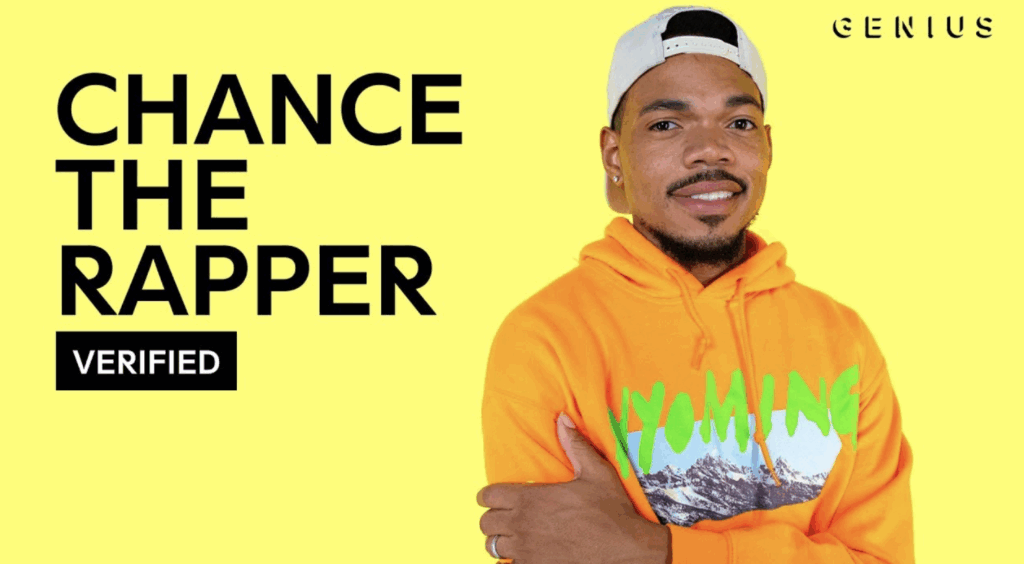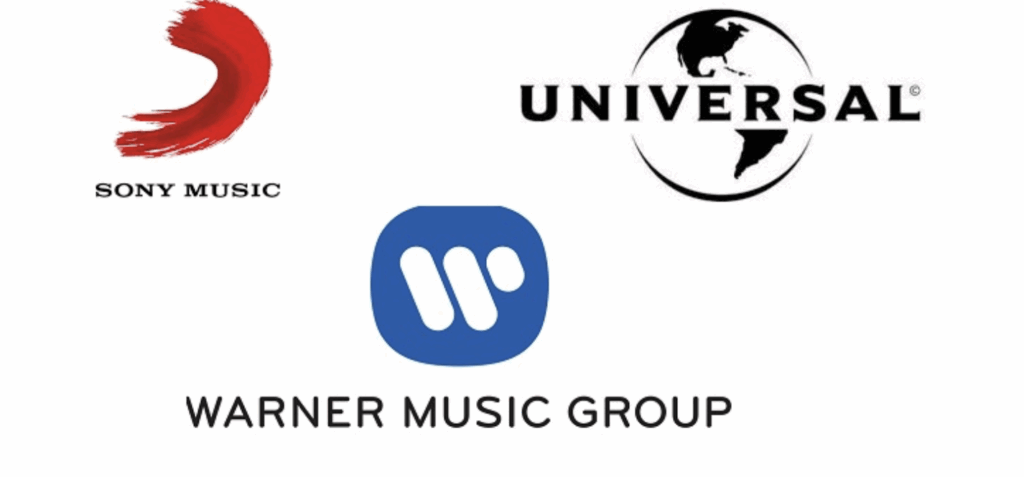It is not a myth that streaming has transformed the relationship between record labels and artists. Music streaming makes up 84% of the U.S. music industry revenue.Moreover, music streaming has rocked the music industry and has rapidly changed the way consumers listen to and buy music. Music streaming services such as Spotify, offer millions of songs from thousands of artists each month at regular rates, giving users access to music at a much lower price than before.
Nowadays, major labels are no longer needed to start reaching success with your music while self-distribution services, streaming platforms, artist websites, and social media like TikTok have made it easier for artists to find independent success.
Today, you can start your music career with good music, gigs, and social media presence. Independent artist Chance the Rapper has proven that you no longer need a record label to become big in the music industry. Chance managed to do everything without a label to support him.

He declined record deals from numerous labels and relied on word-of-mouth and his Soundcloud account to promote his music. By maintaining independence, Chance continues to push his music through the music industry. He released his first three albums (also called “mixtapes”) for free, along with one collaboration album he’s working on. Moreover, instead of selling music to make money, he makes money by performing at concerts and selling merchandise.
The internet and digital technology have made it easier for artists to thrive without record labels, but they still play an important role in the industry. The labels still have a lot they can offer to help you succeed. Even if you’re doing well as an independent artist, you don’t have the financial impact that big record labels have.
The record companies can invest in your music career and pay for the best producers, engineers, and studios and help you grow your career faster. There are various record contracts that record companies offer to artists. It’s important to understand that labels sign artists to promote them and make money that is returned to record labels. So…
As an artist, you make music so it can be heard by other people The question is how to get the music to the masses. This is where record labels come in. But what exactly is the role of a music record label?
As experts in the field, we can help you learn more about that! In this DaimoonMediaarticle, we’re helping you to expand your knowledge on what a record label is and how it operates.
What Is A Record Label?
Record labels are companies that reproduce, distribute, sell and promote recordings for their affiliated musicians. Within a record label different departments work together and execute a variety of activities to ensure the success of their artists such as;
- A&R (Artists and Repertoire, or new artist recruitment and development)
- Digital Marketing
- Press and Media
- Radio Plugging
- Distribution and Revenue Collection
- Synch Licensing Deals
- Branding
And not to forget, the most important thing a label can do for an artist. Record labels have the ability to provide the necessary funding to quickly market an artist to a larger audience.
Types Of Record Labels
There are three main types of record labels: major labels, major label subsidiaries, and independent labels.
Major record labels offer deals to the world’s most successful music artists. As an example, labels, such as Universal Music Group, have a big distribution network that transfers the music of the artists signed under contracts to millions of consumers in a very short time. Major labels engage in a variety of transactions with artists, including licensing and distribution transactions, resulting in significant reductions in the profits of artists around the world.
The major record labels also have sub-labels dedicated to the release, recording, and promotion of various genres of music. Examples include Atlantic Records (Warner), Columbia Records (Sony) and Capitol Records (UMG).
Independent record labels have a smaller distribution network than major labels and tend to reach consumers individually. On the other hand, they have a reputation for grasping the pulsations of future music trends and ultimately giving opportunities to unknown artists who will soon become the next international sensation.
How Does A Record Label Work?
Record labels scout singers and musicians and they sign contracts with them to include them on their artist roster. Having set up their roster of artists, they release the recorded music their artists create, with the aim for both the company and the musician to earn money.
After the deal is signed, the record company can pair the musicians on their roster with producers, writers, engineers, and mixers to get everyone together to create new singles and albums. Once the product is finished and a release day is set, the record label distributes the music to all digital platforms (streaming sites and download stores (iTunes), manufactures CDs and records and ships them to stores.
After which, a promotional plan is created by designing a social media rollout, creating assets, assigning their digital team, informing streaming curators, and other promotional efforts.
Furthermore, the record label helps promote music through traditional promotional channels such as magazines, blogs, television, commercials, radio, and marketing (which can include everything from the cover design to the sale of the song itself). Record labels also focus on releasing and licensing rights-owned music and providing songs such as movies, television, and commercials.
Record Label Control
With the exception of very few, most record labels have the terms and conditions of the artist agreement situated in their favor. This is why, ahead of the actual signing, big legal processes take place to finetune the contract for both parties. Most importantly, most labels have a say over the type of music the signed artist can actually release, taking the full creative control away from the artist.
Moreover, this basically includes everything that’s been executed between both parties, such as artworks, rollouts, collaborators and . There’s an argument to make, as record labels have to protect their investments and public image as much as the artist does, however it doesn’t take away from the barriers it brings up.
What Are The Different Types of Record Label Deals?
- The Record Deal
A record contract represents a legally binding agreement between the artist and the label. Under the terms of the contract, record labels cover the costs of producing, distributing, and marketing recordings. The label invests in your music and development, and in return, you pay them a certain amount from, in most cases, your recorded music income.
The label will first collect, deduct investments and pay you a percentage over the collected royalties from music sales. This percentage and your payout depends on the amounts you’ve agreed upon in your deal, as well as all contexts around advances, costs and payout times.
- The Licensing Deal
As a composer of the music, you own the copyright to your written music and lyrics. This gives you the exclusive right to license this copyright to any individual or party in the world. Not considering a record deal, it also means that you are entitled to the revenue generated with the copyright, called royalties, each time a song is played or played publicly presented on streaming, radio, or elsewhere.
When a record label licenses your music, they buy the, hopefully temporary, rights to the copyright from you and they produce, promote, and distribute it for you. In return, they provide you with an advance upon signature, which is a pre-payout of your royalties that you will have to recoup with your royalties.
However, it doesn allow you to invest more into your career and pay yourself a salary. After licensing your rights, the recording company will now act as the label for your single or album for the discussed licensing term. Note that licensing can happen before and after a single has been released.
When the licensing takes effect after the product has been released, they call this an upscale. For example, record labels might license your single after it has proven success on a platform like TikTok.
- The Distribution Deal
This is a setup where you partner up with a record label or distributor directly in a limited label configuration where the companies will solely distribute your music to streaming services, stores and collect royalties. Usually this comes with limited marketing support and some funding in order to facilitate basic needs. You’ll be compensated similarly to the record deal, where the distributor collects your sales revenue and retracts any sales costs before paying you the agreed percentage of profits.
Expert Tip: Before signing your agreement, always seek legal expertise through a lawyer to make sure you completely understand all the details of the agreement, as well as having extra knowledge available to back up your judgement. Never sign a contract before understanding it first!
Important: Record labels often own the exclusive rights to all sound recordings associated with the master recording of their work and agree to pay the artist a percentage of their net sales (royalties). Or, for the 360 deals, the label takes a percentage over all revenues (books, movies, merchandise, etc.) that the artist is involved in, not just the sales of the record.
What Are The 3 Major Record Labels?
According to Music & Copyright, Universal Music Group has the biggest market share currently with 32%. In second place is Sony Music Entertainment with 20%, and Warner Music Group in third with 16%. This accounts for 68% of the recorded music market. These three record companies are considered the major labels of today and they are called the “Big Three.”

To Wrap It Up
The role of record labels in music as a whole has changed considerably in recent years. The role a label can play in an individual artist’s career may differ, but contrary to common belief, record labels aren’t dead and probably won’t disappear soon. Artists can create their music without giving in on their profits. However, there are still musicians who understand the value of record contracts. Labels can open a lot of doors for artists.
From an artist’s point of view, you might think of a record label as thé service that allows you to grow your project as a musician, but looking at artists like Chance The Rapper and Russ, a record label is no requirement at all. Definitely not as a starting or emerging artist. If you want to sign with a label instead of building all on your own, you will have to make some concessions. It’s up to you whether those weigh out on the concessions of being independent.
If you are aiming for a record deal however, don’t stop doing what you’re best at! Nowadays, record labels are looking for unsigned artists with unique branding and marketing so they have a good foundation to build your career and attract enthusiastic fans. If anything, they’re looking for artists that have already proven themselves through streams, followers, shows and industry talk.
Curious if you can use more help in growing your artist career? Check out our programs to help you scale to real results. If you want to keep learning, follow us on our social media channels for weekly bite-sized knowledge. Moreover, feel free to ask us your questions on our Instagram (@daimoonmedia)!

